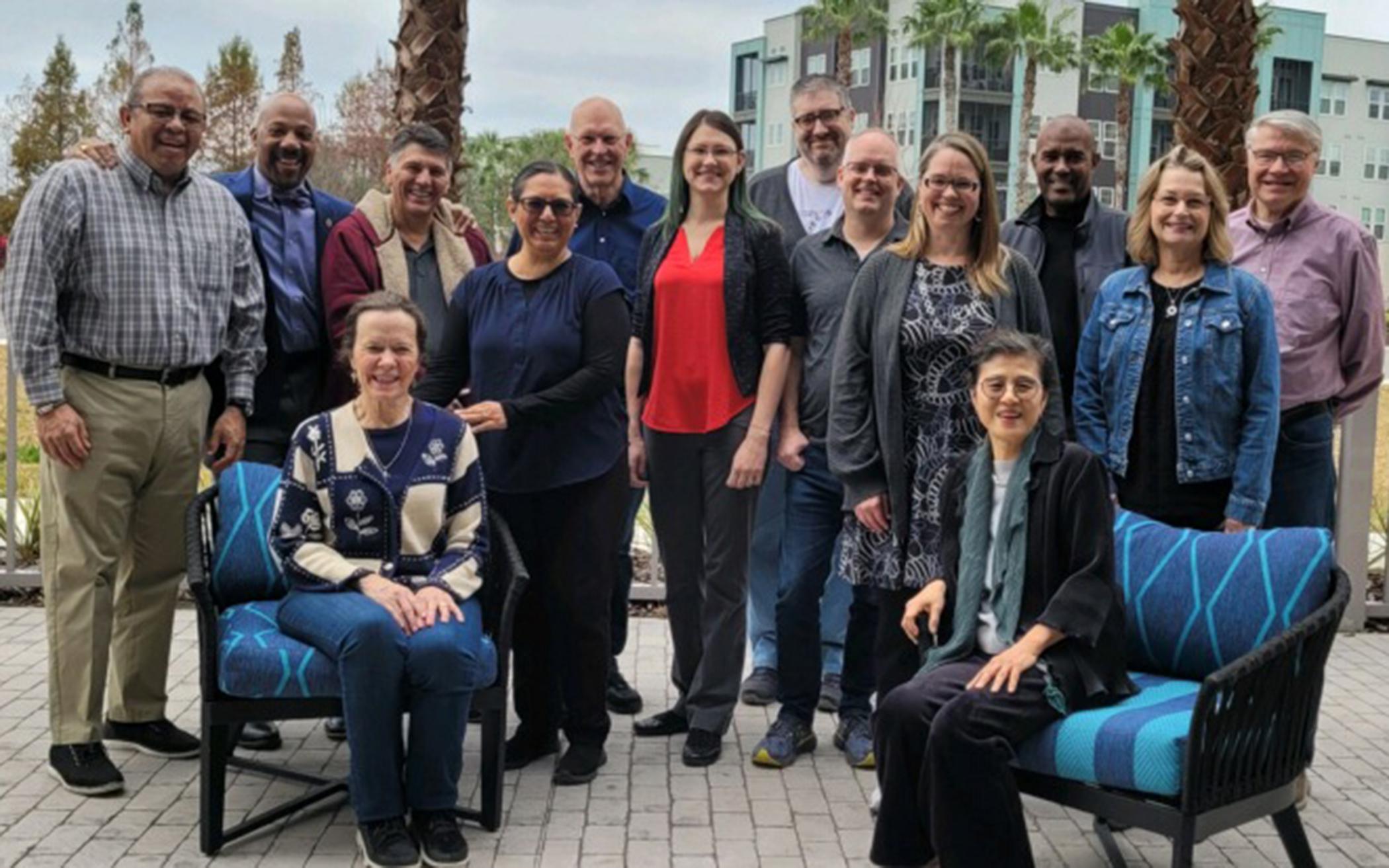The Reformed Church in America has released its restructuring team's final report that will be presented and discussed at the RCA general synod June 13-18 in Tucson, Ariz.
Restructuring team member Greg Brower said three recommendations are likely to have the biggest impact on people in the denomination: eliminating one level of assembly, decreasing the frequency of in-person gatherings of the RCA’s general synod, and balancing the number of delegates that a narrower assembly may send to the general synod.
“A significant reason we’re restructuring is because we are now a notably smaller denomination. We need local bodies of churches large enough to support one another and fulfill the responsibilities currently placed on our classes,” the report authors wrote.
The RCA’s General Synod 2021 approved the restructuring team at the suggestion of the Vision 2020 Team. The group’s focus was “to recommend change to RCA's current structures without changing common theology, creeds and confessions, or basic beliefs.”
The report going to June’s general synod is the fourth iteration since the team started in May 2022. They hosted more than 35 round table meetings—both in-person, and virtual—to gather feedback. Brower said participation varied from 15 to up to 100 participants at each event where team members presented the report and then asked participants for questions. “Sometimes it was a more tense conversation where there was more anxiety in the room, and other times it was a pretty positive and affirming conversation,” Brower said. “Both types of conversations were really helpful for the team to understand what was happening in the denomination and how we could best support that work through our recommendations.”
The final draft highlights nine recommendations. The recommendation to condense to “one level of assembly between the consistory and the general synod” is a significant change. Brower, who is classis leader for the Great Lakes City Classis, said, “We currently have two levels of government between the consistory (a local church’s governing body) and the general synod. We have a classis and the regional synod. And we're suggesting combining those two into one.” The main reasons for this recommendation are to streamline governance structures, alleviate financial strain on churches, and encourage support for local congregations who are experiencing declining membership and resource constraints.
Brower said another of the noticeable changes is to “move from holding an in-person general synod every year to holding an in-person general synod every three years” with virtual assemblies on the off years. Again the rationale is to enhance local and regional ministry focus and save costs as well as to leverage technology so that people who cannot attend in-person can still participate.
The third recommendation Brower said he anticipates the people in the denomination will “feel” is one that adjusts the calculations for delegations to general synod. The report recommends this because, “Over time, the average classis size in the RCA has gotten smaller but the formula for determining general synod delegations has not changed. This has had the effect of skewing the general synod delegation to increasingly over-represent the smallest classes and under-represent the largest classes."
Another six recommendations fit with the previous ones though the changes they call for would first go to commissions or oversight boards to be presented more fully to General Synod 2025, if passed.
One would re-weight the votes for a middle assembly in instances of ratifying a proposed constitutional amendment, basing the count “on the number of delegates that the middle assembly was eligible to send to the general assembly at which the amendment was adopted.”
Another proposes asking the Pastoral Formation Oversight Board (which does similar work in the RCA as the Candidacy Committee does in the Christian Reformed Church) to rework guidelines for ordaining ministers, which would, among other things, "include a process for the determination of equivalency of degrees, especially for candidates coming from areas of the world where the master of divinity degree does not exist.”
There’s also a recommendation to adjust the size of commissions, which report to the general synod annually and advise on various aspects of church life. As the RCA faces challenges in volunteer recruitment and financial constraints, the restructuring team suggests maintaining commissions but adjusting their composition and operating virtually to reduce costs and accommodate a smaller membership base.
Expanding the roles of elders and deacons, with an emphasis on collaboration among all church offices, is another recommendation, as well as reducing covenant shares and experimenting with the consensus model for decision-making.
Once the report is received by General Synod 2024, any approved recommendations that affect the RCA’s Book of Church Order have to also receive approval by two-thirds of the classes and then get the approval of the following general synod before coming into effect.
About the Author
With a passion for words and creativity, Kristen Parker has been a freelance news correspondent for The Banner since 2019. She became the communications coordinator for Canada with Christian Reformed Church Communications in 2025. Kristen and her husband Chris, enjoy running and thrift shopping. They attend Stratford CRC in Stratford, Ont.

